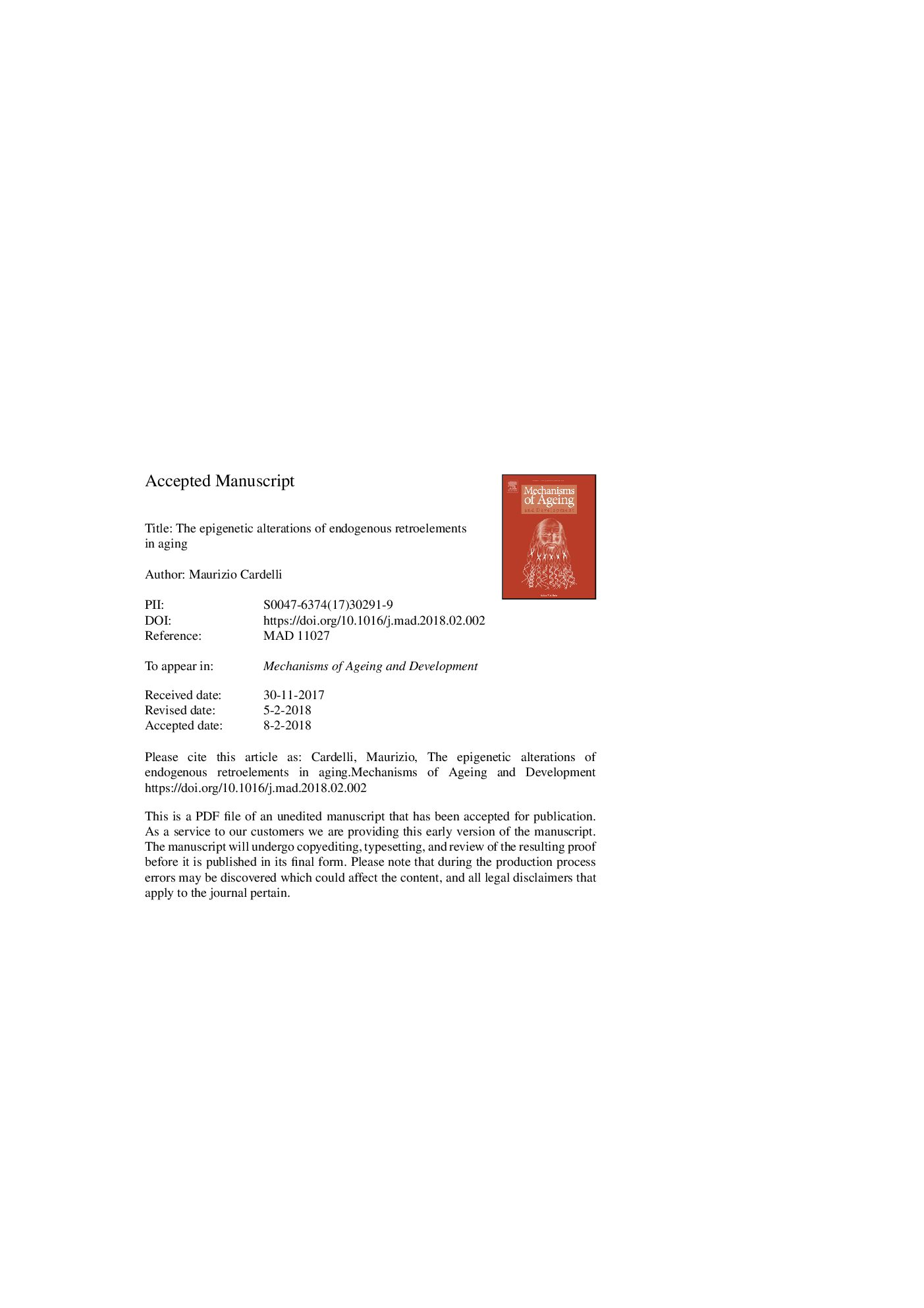| Article ID | Journal | Published Year | Pages | File Type |
|---|---|---|---|---|
| 8284656 | Mechanisms of Ageing and Development | 2018 | 48 Pages |
Abstract
Endogenous retroelements, transposons that mobilize through RNA intermediates, include some of the most abundant repetitive sequences of the human genome, such as Alu and LINE-1 sequences, and human endogenous retroviruses. Recent discoveries demonstrate that these mobile genetic elements not only act as intragenomic parasites, but also exert regulatory roles in living cells. The risk of genomic instability represented by endogenous retroelements is normally counteracted by a series of epigenetic control mechanisms which include, among the most important, CpG DNA methylation. Indeed, most of the genomic CpG sites subjected to DNA methylation in the nuclear DNA are carried by these repetitive elements. As other parts of the genome, endogenous retroelements and other transposable elements are subjected to deep epigenetic alterations during aging, repeatedly observed in the context of organismal and cellular senescence, in human and other species. This review summarizes the current status of knowledge about the epigenetic alterations occurring in this large, non-genic portion of the genome in aging and age-related conditions, with a focus on the causes and the possible functional consequences of these alterations.
Keywords
lncRNAMeDIPHERVWGBSLMNB1HNSCCLong non coding RNALTRMalRIAPVNTRhADSCCOBRAEREPBLMecp25mC5-Methylcytosinecell-free DNAMethylated DNA immunoprecipitationSINEEpigeneticsTADAge-related diseasescombined bisulfite restriction analysisTransposonswhole-genome bisulfite sequencingLong terminal repeatLINEtopologically associated domainintracisternal A-particleHuman endogenous retrovirusAgingTransposable elementLong Interspersed Nuclear Elementshort interspersed nuclear elementlamin B1peripheral blood leukocytesDNA methylationMonozygoticmethyl-CpG-binding protein 2Head and neck squamous cell carcinoma
Related Topics
Life Sciences
Biochemistry, Genetics and Molecular Biology
Ageing
Authors
Maurizio Cardelli,
